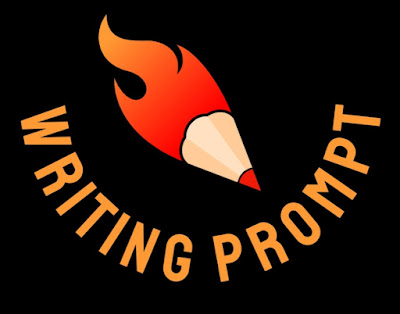
The Journey of Description: From the Writer's Imagination to the Reader's Mind
by Olivia Salter
Stephen King, one of the most prolific and revered authors of our time, once said, “Description begins in the writer’s imagination, but should finish in the reader’s.” This insightful quote encapsulates a fundamental principle of effective writing: the art of engaging readers by allowing them to complete the picture. Let's explore the journey of description and how writers can harness their imagination to evoke vivid imagery in the minds of their readers.
The Writer’s Imagination: The Genesis of Description
At the heart of every compelling story lies the writer’s imagination. This is where the world of the narrative is born, where characters, settings, and plots take shape. The writer’s mind is fertile ground, teeming with ideas and images that are both vivid and intricate. Descriptions begin here, crafted with the purpose of drawing readers into the narrative world.
Consider J.K. Rowling’s creation of Hogwarts in the Harry Potter series. The description of the castle, with its moving staircases, hidden passages, and enchanted ceiling in the Great Hall, originates from Rowling's rich imagination. She provides just enough detail to spark the reader's creativity, making Hogwarts a place that feels real and tangible.
The Art of Suggestion: Less is More
While detailed descriptions can paint a clear picture, there is an art to knowing when to hold back. Over-describing can stifle the reader’s imagination, leaving little room for personal interpretation. Great writers understand the power of suggestion, using precise, evocative language to guide the reader's mind without dictating every detail.
Ernest Hemingway’s “Iceberg Theory” is a prime example of this technique. In his short stories, Hemingway often omits extensive descriptions, leaving much to the reader’s imagination. This minimalist approach allows readers to engage more deeply, filling in the gaps with their own experiences and perceptions.
Engaging the Senses: Creating a Multisensory Experience
To effectively transport readers into their world, writers must engage all the senses. Descriptions should not only be visual but also appeal to sounds, smells, tastes, and tactile sensations. This multisensory approach makes the narrative more immersive and believable.
In Patrick Süskind’s novel “Perfume: The Story of a Murderer,” the protagonist’s extraordinary sense of smell is described in such detail that readers can almost perceive the scents themselves. This sensory richness adds depth to the character and the world he inhabits, making the story unforgettable.
The Reader’s Imagination: Completing the Picture
The ultimate goal of description is to ignite the reader’s imagination. When readers actively participate in constructing the narrative world, they become more invested in the story. This engagement transforms passive reading into a dynamic interaction between the text and the reader.
For instance, in Ray Bradbury’s “Fahrenheit 451,” the description of the dystopian world is deliberately sparse. Bradbury provides enough detail to evoke a sense of unease and oppression, but it is the reader who completes the scene, drawing on their own fears and experiences to flesh out the stark reality of a society devoid of books.
The Balance: Guiding Without Constraining
Striking the right balance between detailed description and imaginative freedom is key. Writers must guide readers with their descriptions, providing enough detail to create a vivid image while leaving room for personal interpretation. This balance allows the reader to become a co-creator of the narrative, making the story more engaging and memorable.
Stephen King’s quote reminds us that the magic of storytelling lies not just in the words on the page, but in the shared space between the writer’s vision and the reader’s imagination. It is in this space that stories come to life, each one unique to the reader who brings it to completion in their mind.
In conclusion, the journey of description, from the writer’s imagination to the reader’s mind, is a collaborative dance. Writers provide the framework, the sparks of imagery and emotion, while readers bring their own experiences and creativity to build upon that foundation. By mastering the art of suggestion and engaging the senses, writers can create rich, immersive worlds that readers are eager to explore and complete. As Stephen King so aptly put it, the true power of description lies in its ability to begin in one imagination and finish in another, making each story a shared creation and a unique experience for every reader.








